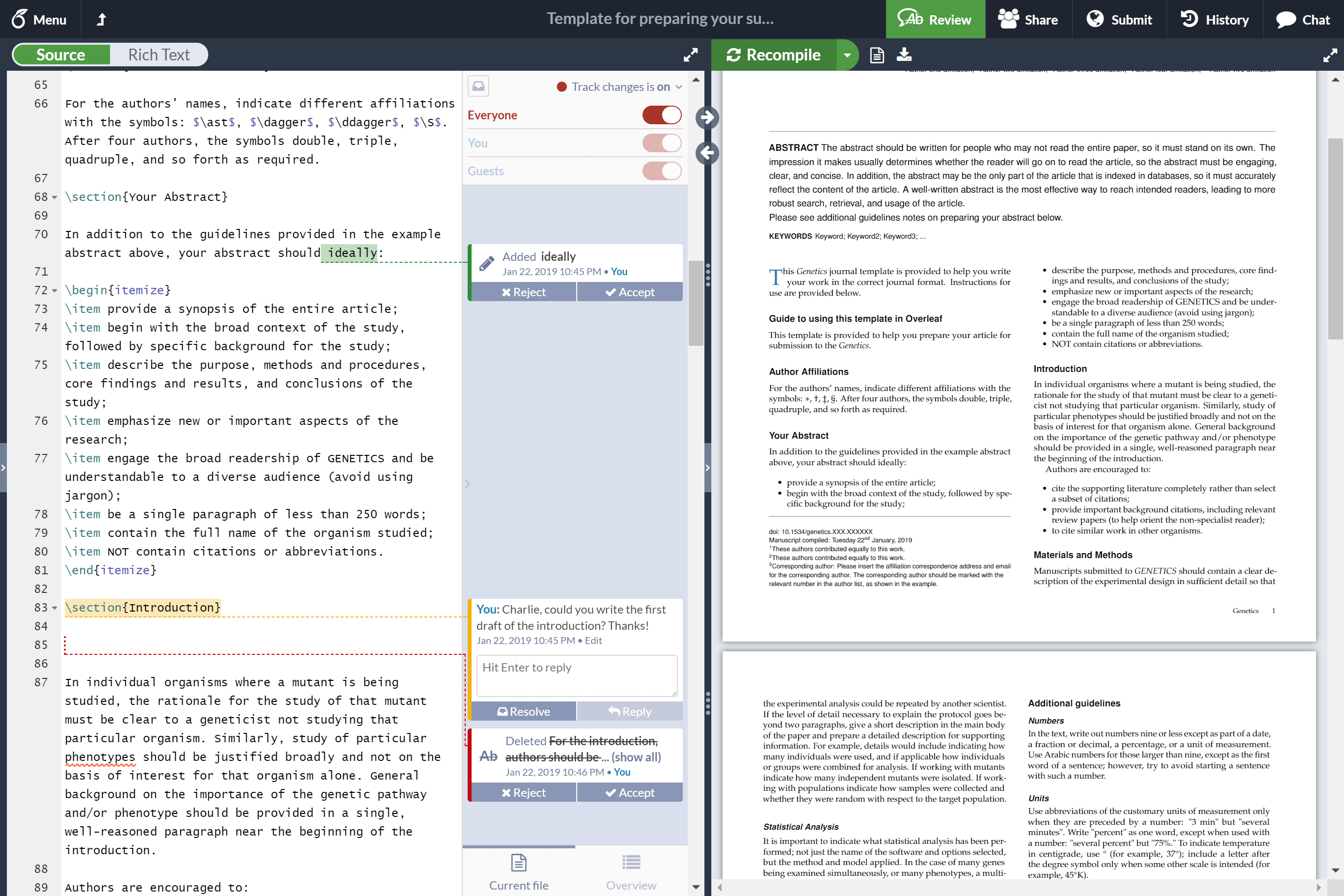Wow—Four million people now use Overleaf!
John · March 27, 20194,047,647 to be exact. Well, exact for at least one instant in time 😊
On behalf of the whole Overleaf team, I'd like to say:
Thank you. We've always tried to put you—our users—first, aiming to provide the best tool for editing and collaborating on LaTeX documents online whilst simultaneously growing as a business and as a team.
These past two years have seen some of the biggest changes—and the biggest advances—as Overleaf and ShareLaTeX joined together to create Overleaf v2. It's not always been the simplest of integrations, but we've done our best to make it a smooth transition and get it all running as one.
Whether you're someone just starting out, creating your first LaTeX documents on Overleaf, or someone who's been writing since early days of TeX itself, we're doing our best to make Overleaf easy and convenient to use regardless.
We appreciate all the love and support you show us (which is shared internally on our #overleaf-testimonials Slack channel!), and are looking forward to the next four million users...and the learnings that will undoubtably bring!
Thanks again—you're all amazing 😊

Where it all began
Overleaf has come a long way since it began life over six years ago as WriteLaTeX; back then at the very beginning you couldn't even sign up for an account, you just had to bookmark or write down the URLs for your projects!

We actually launched sign-ups whilst on the front page of HackerNews in December 2012, and looking back it's nice to see all the feedback and encouragement we had from the community right from the outset:



(and yes, Overleaf now provides a PDF preview on the right, along with spell check and auto-complete 😊)
Since then we've continued to build and enhance Overleaf based on your feedback (which is always appreciated), to continue to lower the barriers for new users whilst providing as much of the full breadth of LaTeX as we can for power users. This has led us to the Overleaf we have today; a combination of a powerful LaTeX source editor with track changes and commenting, third-party integrations with services such as Dropbox, GitHub and Git, and a Rich Text mode that lets you work in a more Word-processor style environment if you prefer to.


What's coming next
Since the launch of v2 we've been continuing to release a regular stream of minor updates and improvements to the platform, in the form of bug fixes, feature enhancements, and UI/UX improvements.
We've also just relaunched our beta programme: if you visit your account settings page you can opt in, and you'll get access to features ahead of their full release. This means they may be a little incomplete, as we're still working on them, and feedback on these features in test is always appreciated.

We're currently testing out the first phase of Rich Text track changes via the beta programme; if you opt-in, and then switch to Rich Text mode with track changes turned on, your changes will be visible in the editor! We're still working on the Review panel, which is why this feature is still in beta, but any feedback on this first phase is very welcome.
Other big projects that are in the works are a new release of Server Pro and the Community Edition (the locally-installable versions of Oveleaf/ShareLaTeX); improvements to the Dropbox-sync; institutional single-sign-on, and the release of the full version of the Rich Text tracked changes feature mentioned above. We also have some other exciting projects on the go, which we'll announce a bit nearer to their completion 😊
Thanks again for all your love and support for Overleaf; it's hugely appreciated, and we look forward to exciting times ahead!